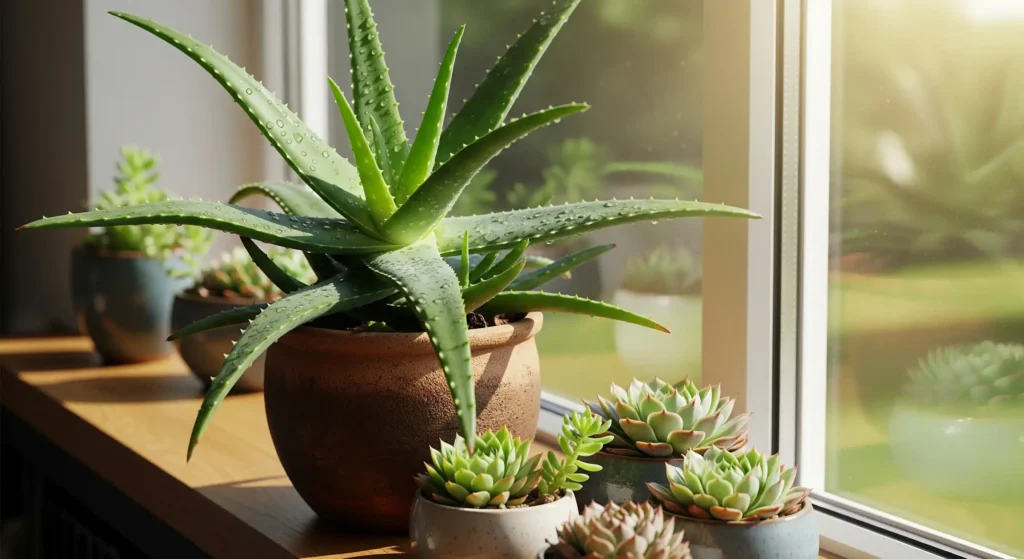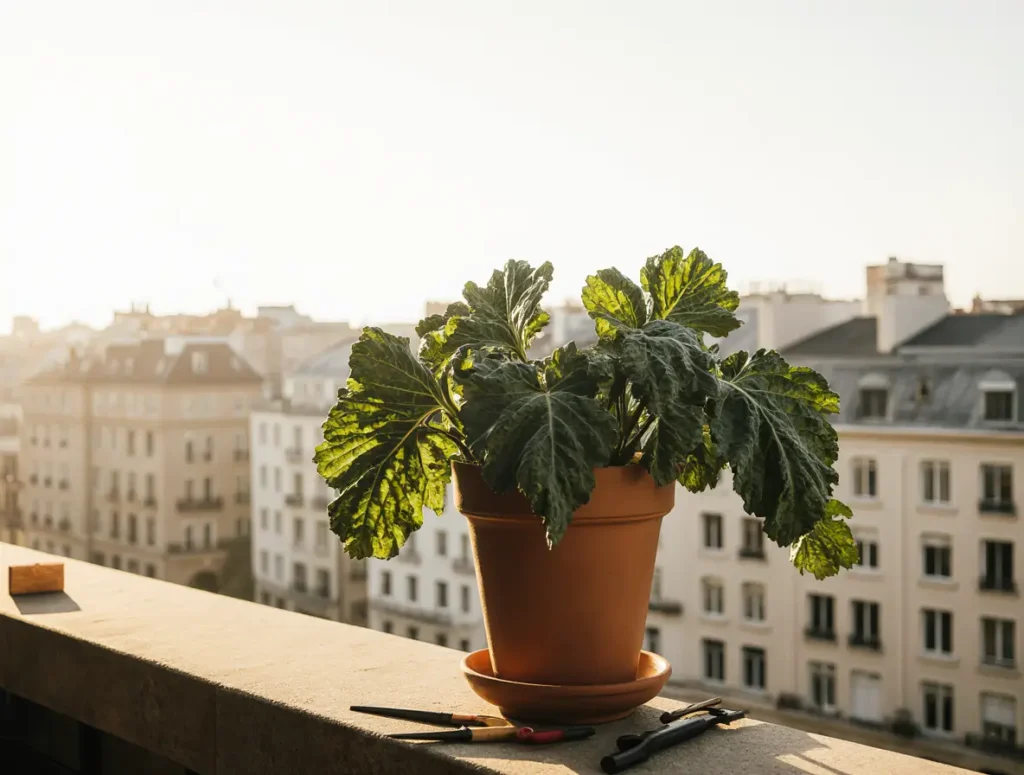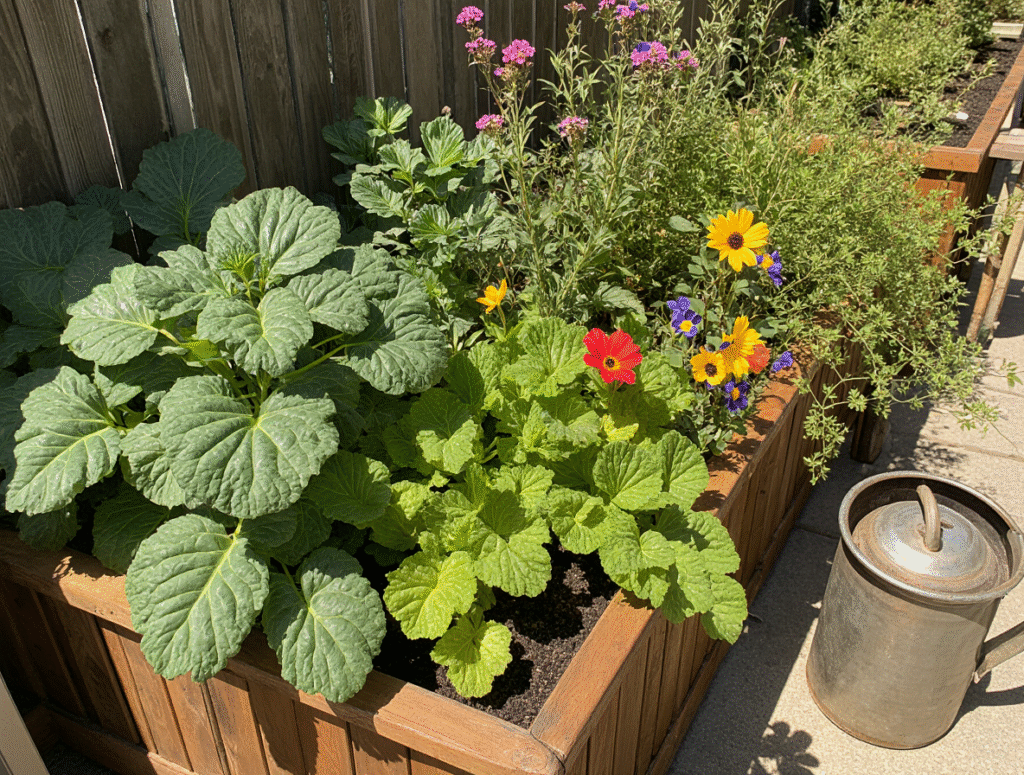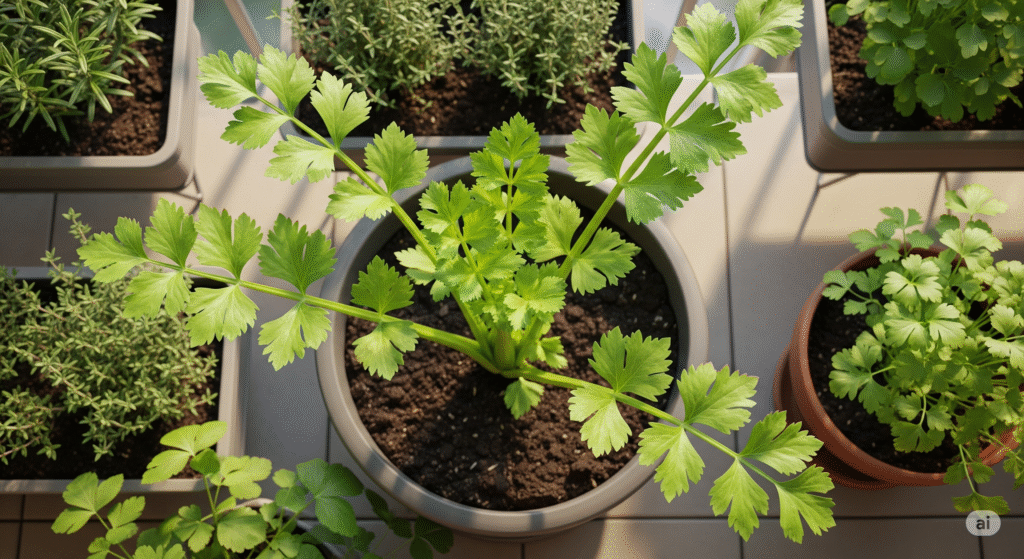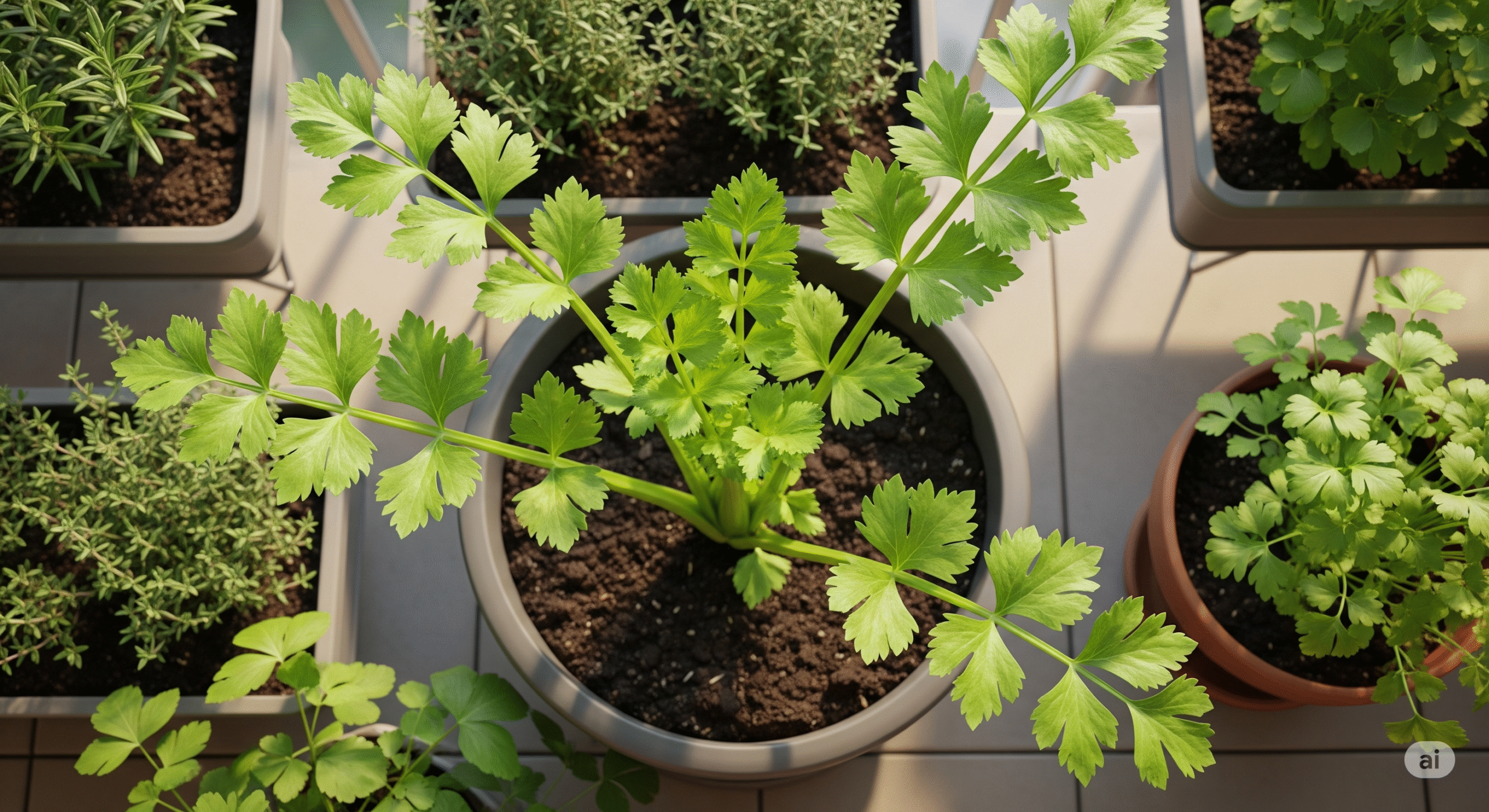
How to Regrow Celery in Pots: A Complete Step-by-Step Guide for Beginners
Do you find yourself tossing celery scraps in the trash? What if you could turn them into lush, edible stalks right from your patio or balcony? Whether you’re a seasoned gardener or just getting started, learning how to regrow celery in pots is one of the easiest and most satisfying ways to grow your own food at home.
This guide walks you through everything you need to know, from selecting the right celery base to harvesting crunchy new stalks. Even if you don’t have a yard, this container gardening method works wonders. Let’s get into it!
Why Regrow Celery in Pots?
Before diving into the how-to, let’s look at why regrowing celery in containers is a smart move:
- Zero waste: Reduce kitchen waste by repurposing your scraps.
- Space-saving: Perfect for urban gardens, balconies, or patios.
- Low maintenance: Celery is a forgiving plant if given the right conditions.
- Cost-effective: One stalk can turn into many more without repeated grocery trips.
What You’ll Need
To regrow celery in pots, gather the following:
- A fresh celery bunch (preferably organic)
- A sharp kitchen knife
- Small shallow dish or jar
- Clean water
- Toothpicks (optional)
- 8 to 12-inch pot with drainage holes
- Rich, organic potting soil
- Sunny spot with indirect light (windowsill, patio, or balcony)
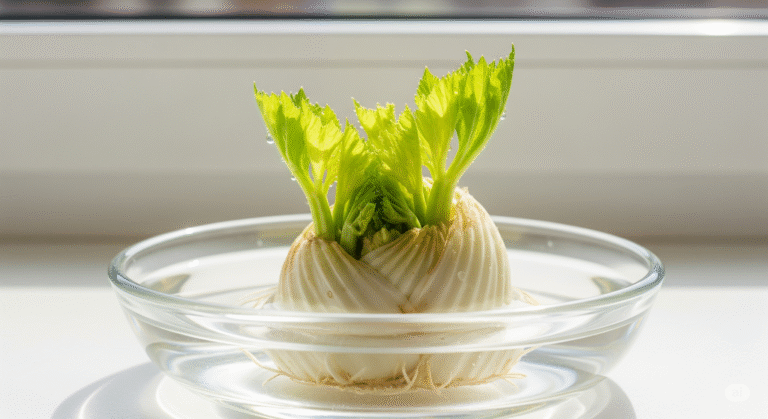
Step 1: Choose and Prepare the Celery Base
Start by selecting a healthy celery stalk from the grocery store or farmer’s market. The key is to find one with a clean, firm root base—avoid any bunches that are mushy or browning at the base.
How to Cut the Base:
- Slice off the bottom 2 inches of the stalk (this is the part you’ll regrow).
- Use a sharp knife to make a clean, flat cut.
Pro tip: Save the top stalks for meals or smoothies. You’re only working with the root base here.
Step 2: Soak the Celery Base in Water
Now that you’ve got your base ready, it’s time to encourage initial regrowth.
Instructions:
- Place the celery base in a shallow dish with about 1 inch of water.
- Optional: Insert toothpicks to suspend the base if the bowl is deep.
- Put the dish in a well-lit area but out of direct sun.
- Change the water every 2 to 3 days to prevent mold.
What to Expect:
Within 3 to 5 days, you should see small yellow-green shoots emerging from the center. Tiny roots may also begin to form at the base. Don’t worry if the outer stalks turn brown—this is normal.
Step 3: Transplant the Celery into a Pot
After a week in water, your celery is ready to move into soil. This gives it the nutrients and stability it needs to grow into a full plant.
Choosing the Right Container:
- Use an 8 to 12-inch pot with good drainage.
- Make sure it has at least one drainage hole to avoid waterlogged roots.
- Avoid shallow containers, as celery grows best with room for root expansion.
Potting Instructions:
- Fill the container with nutrient-rich potting mix.
- Make a small hole in the center and gently place the rooted celery base inside.
- Leave the new growth tips exposed above the soil line.
- Firm the soil gently around the base and water thoroughly.
Step 4: Provide Ideal Growing Conditions
Celery enjoys a consistent, moist environment and moderate temperatures. Here’s how to create the best setup:
Light:
- Provide 6+ hours of indirect sunlight daily.
- If indoors, place it near a sunny window or supplement with a grow light.
Watering:
- Keep the soil moist but not soggy.
- Water when the top inch of soil feels dry.
- Avoid letting the soil dry out completely, as celery can become bitter.
Fertilizer:
- After 2-3 weeks in soil, apply a balanced, organic liquid fertilizer.
- Feed once every 2 weeks to support lush growth.
Step 5: Harvest Your Homegrown Celery
Depending on growing conditions, your celery will be ready to harvest in about 3 to 4 months.
How to Harvest:
- Cut outer stalks at the base when they reach 8 to 10 inches tall.
- Allow inner stalks to continue growing for ongoing harvests.
- Alternatively, you can harvest the entire plant by pulling it out gently from the soil.
Bonus Tip:
Don’t forget that celery leaves are edible too! Use them in soups, stocks, or as a garnish.
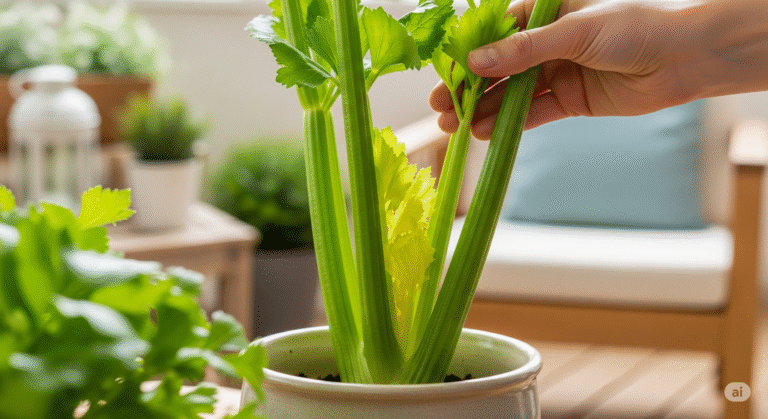
Troubleshooting Common Issues
Even with the best care, you might face a few challenges. Here’s how to troubleshoot:
Yellowing Leaves:
- Often a sign of overwatering or poor drainage.
- Check your pot and adjust watering frequency.
Weak or Slow Growth:
- Celery loves rich soil. Consider adding compost or boosting with organic fertilizer.
- Make sure it gets enough light.
Pests:
- Watch for aphids or snails.
- Use neem oil spray or pick pests off by hand.
Benefits of Growing Celery in Pots
Still wondering if it’s worth the effort? Here are the top benefits:
- Saves money: Fewer grocery runs for fresh celery.
- Eco-friendly: Reduces food waste and packaging.
- Educational: Great project for kids and beginners.
- Space-efficient: No garden required—just a pot and a sunny corner.
Expert Tips for Success
- Rotate your pot every few days for even light exposure.
- Mulch the top of the soil to retain moisture.
- Don’t overcrowd: If planting multiple celery bases, give each at least 6 inches of space.
- Track progress with weekly photos—you’ll be amazed at the transformation.
Final Thoughts
Now that you know how to regrow celery in pots, there’s no reason to let those kitchen scraps go to waste. With just a bit of patience and care, you can grow a thriving celery plant from a simple grocery store stalk. Whether you’re in an apartment or a house, this small gardening project can lead to big rewards—fresh, crunchy celery whenever you need it.
Happy planting!
Frequently Asked Questions (FAQ)
How long does it take to regrow celery in pots?
Celery typically takes 3 to 4 months to grow full-sized stalks after transplanting into soil.
Can I regrow celery indoors?
Yes! Just place your pot near a sunny window or use a grow light for optimal results.
Do I need to use organic celery?
Organic is preferred because it’s less likely to contain growth inhibitors, but conventional celery can also regrow.
How many times can I regrow the same celery base?
Usually once. After one full growth cycle, the root base becomes too exhausted to regenerate.
Is regrowing celery in water alone enough?
Water is great for starting the regrowth, but for full-sized stalks, you’ll need to transplant into soil.
Can I grow celery all year round?
If you grow indoors with the right lighting and temperature, yes—celery can be grown year-round in pots.
You Might Like

